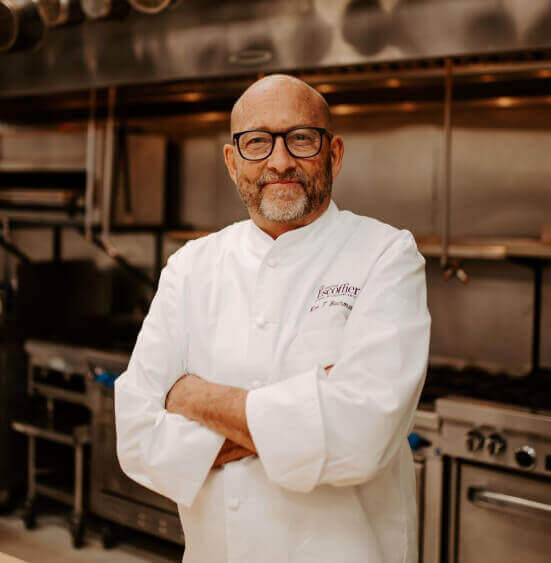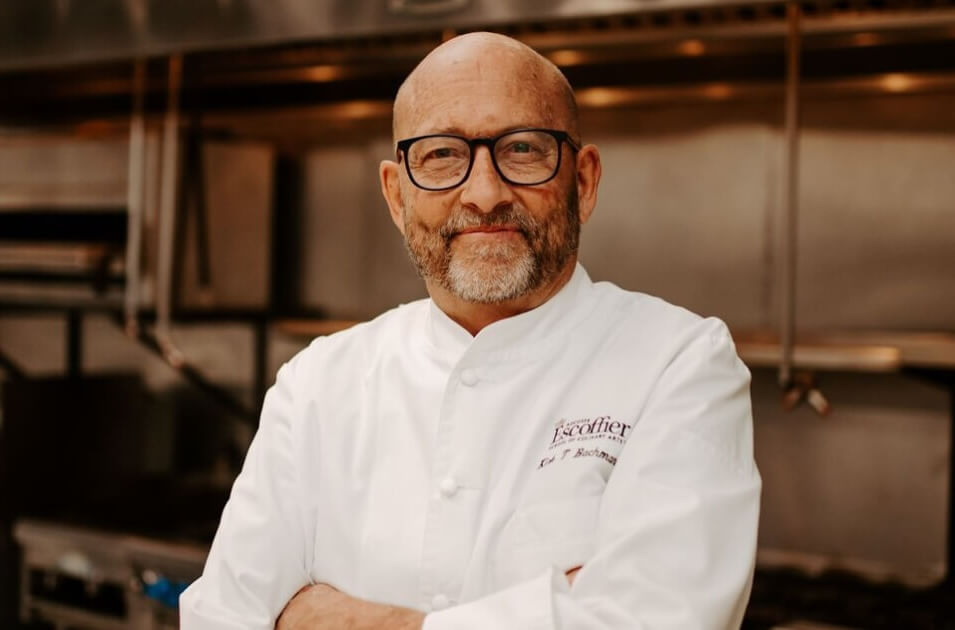Listen to This Article:
Have you ever felt like your job just wasn’t working for you anymore?
During the pandemic, millions of people across every industry started rethinking their careers in what became known as The Great Resignation. Foodservice workers were no exception. Many left traditional restaurant jobs in search of something different – maybe something with more flexibility and room to be creative.
That shift may have changed the culinary world forever.
Today, careers like ghost kitchen operator, food content creator, and meal kit developer barely resemble traditional restaurant work. But they’re some of the fastest-growing and most exciting opportunities for anyone who loves food.
Why Culinary Careers Transformed After 2020
When foodservice lost approximately 5.5 million jobs in one month, restaurants had to reinvent themselves fast. Rather than waiting for things to go back to “normal,” the industry evolved. Ghost kitchens emerged out of necessity. Food trucks found new audiences. Meal kit companies exploded in popularity. Content creators discovered that millions of people wanted to explore cooking skills online.
Many foodservice workers began rethinking roles. Some decided to finally pursue passions they had set aside for years.
Then as the economy reopened, many people didn’t return to their workplaces. In 2021, the accommodation and food services industry quit rate peaked at 6.9%, more than double the national average.
Today’s culinary world includes jobs that barely existed before 2020, like virtual restaurant operators and food tech developers. Whether you love cooking, want to run a business, or want to create food content, there are now more career paths than ever before.
Let’s look at some of the most promising new culinary career options that have emerged.
New Food Industry Jobs You Can Explore
These new opportunities span everything from tech-savvy entrepreneurship to creative storytelling, offering culinary professionals ways to explore careers around their passions. Many of these roles may provide the flexibility, creativity, and earning potential that drove many people to rethink their careers in the first place.
Ghost Kitchens & Food Truck Business Opportunities
After the pandemic, two of the easiest ways to start your own food business took off: ghost kitchens and food trucks.
Ghost Kitchens represent a fundamental shift in how restaurants operate. These delivery-only kitchen spaces allow operators to run multiple virtual restaurant brands from a single location, drastically reducing overhead costs while reaching customers through apps like DoorDash and Uber Eats. The U.S. ghost kitchen market reached approximately $2.88 billion in 2024.
Benefits of ghost kitchens can include:
- Full focus on food prep and menus
- No front-of-house stress
- Predictable schedules
- Lower overhead costs
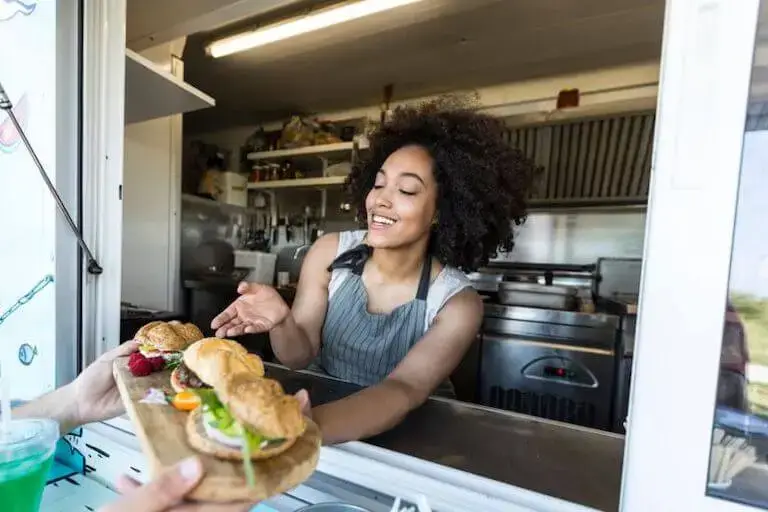
Food trucks offer chefs flexible schedules and a direct way to serve their creations to customers.
Food Trucks have evolved beyond basic lunch wagons. The industry has grown steadily, with the number of mobile food businesses increasing by 13.2% from 2020 to 2025—bringing the total to approximately 58,064 trucks on the road nationwide. Modern food truck operators often use social media to build followings, participate in food festivals, and even expand into catering and meal delivery services.
Both paths can offer significantly lower startup costs than traditional restaurants, which can help make entrepreneurship more accessible. These opportunities can also provide creative control and flexible scheduling that some culinary professionals don’t find in a restaurant setting.
Meal Kit & Product Development
The meal kit industry exploded during lockdowns and has maintained strong growth as consumers continue seeking convenient cooking solutions at home. Companies like HelloFresh, Blue Apron, and countless smaller operations depend on chefs who can develop recipes that work at scale. These dishes need to taste great, ship well, and be capable of being prepared by home cooks with varying skill levels.
Meal kit development is an option that can allow chefs to use their skills without the demands of traditional kitchen shifts. This can lead to more predictability in scheduling and possibly make it easier to find work-life balance.
Food product development can include:
- Meal kit recipe creation
- Grocery store product development
- Specialty food design
- Private label product development
These roles often come with the creative satisfaction of seeing your recipes reach thousands of consumers.
Food Content Creation
The pandemic accelerated a trend that was already building: people turning to online platforms for cooking education and entertainment. Food content creation has evolved from a hobby into a legitimate career path with multiple revenue streams for a number of people.
Online content can help chefs share their work with more people while working their preferred schedule. They can work from home, travel when they want, and prepare the food of their choice. They can also choose to review food or restaurants, combining culinary expertise with creative self-expression.
Ways food content creators earn income include:
- Sponsorships
- Affiliate links
- Online courses
- Cookbook sales
- Subscription content
Platforms like YouTube, TikTok, Instagram, and Substack have created direct paths for culinary professionals to build audiences and generate income without traditional restaurant employment.
*Information may not reflect every student’s experience. Results and outcomes may be based on several factors, such as geographical region or previous experience.
The key is understanding that content creation requires more than just cooking skills—you need to understand your audience, create engaging visual content, and maintain consistent posting schedules. But for those who excel at it, the income potential can be theirs to control.
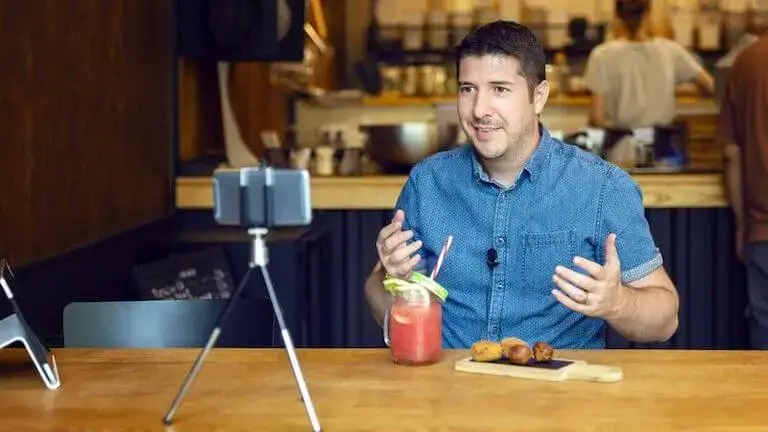
Food content creators can share recipes, reviews, and culinary tips with online audiences worldwide.
Corporate & Institutional Dining Careers
Several niche areas have expanded significantly, offering alternatives to traditional restaurant work with improved workplace conditions:
Corporate & Institutional Dining: Healthcare systems, universities, corporate campuses, and senior living facilities can offer stable employment with comprehensive benefits packages. These positions often provide opportunities for menu development, staff management, and large-scale food production experience with clear advancement paths.
Culinary Training & Development: High turnover rates have led many companies to invest in internal training programs, creating roles for experienced professionals who can design curricula, train new employees, and reduce turnover through better onboarding.
Sustainability & Zero-Waste Consulting: Recent surveys show that 91% of consumers prefer to patronize businesses that actively reduce food waste. At the same time, more restaurants are focusing on working with local providers, managing food waste better, recycling more, and reducing single-use plastic. As sustainability remains a priority, we may see more emphasis on roles like waste-reduction consultants, farm-to-table coordinators, and sustainable sourcing specialists.
Restaurant Technology & Digital Food Industry Jobs
As technology continues to expand and grow, it’s shaping new opportunities in many industries, including the culinary world. For example, culinarians who are interested in technology can develop apps, like those that help restaurants reduce food waste, help consumers discover new restaurants, or help grocery stores sell food before it expires.
Restaurant tech specialists help implement POS systems, menu optimization software, and app-based ordering platforms. Food photographers and videographers create compelling digital content for restaurants and brands. Data analysts help restaurants understand customer preferences and optimize operations. These roles often keep professionals connected to the food industry they love while offering more predictable schedules.
Better Pay and Benefits
The labor shortage that followed pandemic layoffs forced restaurants to compete for workers in ways the industry had never seen before—wage increases of around 28% between 2020 and 2024 fundamentally changed the economics of culinary careers.
As of May 2024, food preparation workers earned around $16.45– per hour, while chefs and head cooks earned approximately $60,990 per year. Although these figures vary significantly by location and establishment type, they represent substantial increases from pre-pandemic levels.
More importantly, these wage increases have been accompanied by comprehensive benefit improvements. Major restaurant chains like Chipotle have added health care, tuition reimbursement, and 401(k) benefits to attract and retain employees. These benefits packages, once rare in the industry, are becoming more prevalent as operators recognize that competitive compensation extends far beyond hourly wages.
Today’s benefits often include:
- Flexible scheduling
- Paid time off
- Mental health support
- Career development programs
- Profit-sharing or bonuses
Fast-Track Career Advancement Opportunities
Since 2020, labor shortages in the industry have created new opportunities for advancement. With fewer workers available, many restaurants are promoting team members more quickly in an effort to retain skilled talent.
According to Harvard Business Review, early promotions have become a common strategy in the tight labor market. For chefs who develop strong foundational skills and leadership abilities, transitioning from line cook to supervisory roles may occur faster than before.
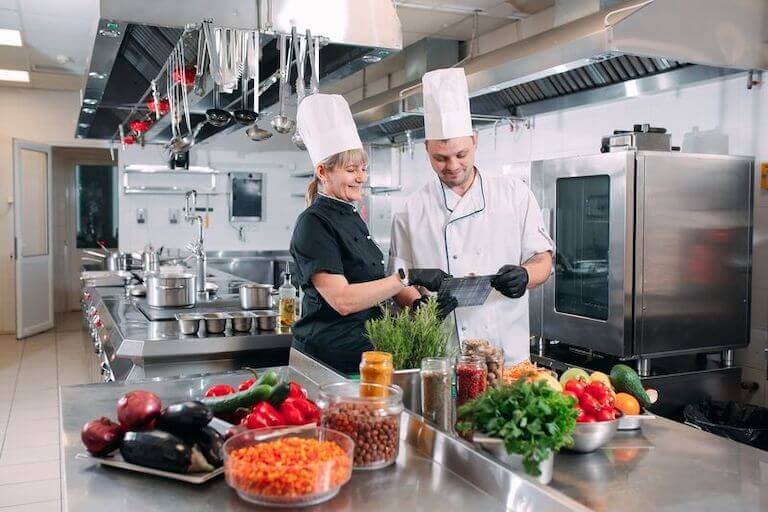
Advancing into leadership roles allows chefs to guide teams and shape menus in their kitchens.
Skilled professionals are more valuable than ever. Those who adapt to new technologies, build strong teams, or create engaging content often find significant advancement opportunities and more competitive pay. Despite past challenges, the foodservice industry continues to prove its resilience – offering stable, rewarding careers for those ready to grow.
How Culinary School Can Prepare You for New Food Industry Jobs
The culinary world offers more opportunities than ever before, and a quality culinary education can provide the skills needed to succeed in today’s diverse food industry. Whether you work in a restaurant, develop meal kits, or create food content online, a solid foundation in cooking, food safety, and menu development remains essential.
At Auguste Escoffier School of Culinary Arts, you can explore more than cooking techniques. You can study:
- Core cooking and food safety
- Business and financial management
- Leadership and team management
- Food photography and social media marketing
- Entrepreneurship fundamentals
These skills may open doors to advancement, team leadership, entrepreneurship, or building your own food content brand.
Ready to explore how a culinary education might help prepare you for these exciting opportunities? Contact us to find out more about Escoffier’s programs.

